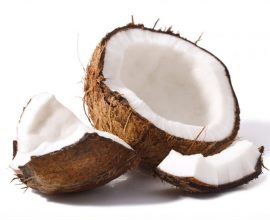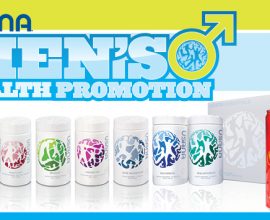
4 Reasons Nutrition Is Especially Important For Children
Nutrition is important at any age, especially for growing kiddies. We face new challenges in 2018, such as the vast selection of processed snacks available in stores, with added sugar and lacking in essential nutrients. Learn how you can support children’s nutritional needs and fuel them for the best future.
Four Reasons Why Good Nutrition Is Important For Kids
- Children never stop growing, from birth to the end of adolescence.
- Kilo for kilo, a five-year-old child needs more thiamin, riboflavin, niacin, vitamins A and C, and vitamins B6 and B12 than a 25-year-old man.1
- Fuel for play periods that include running, jumping and testing of new physical skills.
- Nutrients in preparation for the accelerated growth spurts of the teen years.
Today’s Childhood Nutrition
One clinical study after another shows that our children do not receive all the nutrition they need from their diets. In addition to problems caused by high intake of fat, particularly saturated fat, many children are simply not getting enough of the essential nutrients.2 A 2016-2017 New Zealand Health survey found Nearly 100,000 children aged 2–14 years (12.3%) were obese.3
Less than 25% of young people eat the recommended five servings or more of fruits and vegetables each day. And nearly one-quarter of all vegetables consumed by children and adolescents are chips.4 Adequate amounts of key nutrients such as zinc, vitamin B6, magnesium and calcium are missing from the diets of more than 50% of children from 2 to 10 years old.5,6
Childhood nutrition is not only important for a child’s developing years. Maintaining optimal health is a lifelong challenge. More and more medical research is showing that it is the poor diet and bad habits that are established in childhood that may play a role in the development of degenerative diseases of middle and old age. With this in mind, it is important to focus today on maintaining a child’s health through proper eating patterns.7,8
https://www.instagram.com/p/Be5-bG2n_vH/?tagged=usanimals
Essentials for Children
Usanimals contain an array of antioxidants, vitamins and minerals, in amounts designed especially for active, growing children.
Vitamins D and C, along with selenium and zinc, support normal and healthy immune function. Vitamins E and C are two of the most powerful antioxidants needed by the human body. Vitamin E is one of the most important antioxidants because it helps to maintain strong cell membranes.9-11 In addition to its antioxidant role, vitamin C is essential to form collagen in bones, cartilage, muscle and blood vessels. Advanced levels of calcium, with magnesium and vitamin D, play a key role in supporting normal healthy bone and skeleton structure, and strong teeth. Iron, iodine and B group vitamins support normal healthy energy production, which is so important for active children. Iodine along with zinc supports normal growth and development. Beta carotene supports healthy eyesight.
Usanimals have fun animal shapes stamped on the round, easy-to-eat chewable tablets, with a great Wild Berry flavour. They’re free of artificial flavours and sweeteners, to keep parents happy too!
Usanimals is now vegetarian safe. Usanimals is laboratory tested and quality guaranteed. It meets British Pharmacopoeia specifications for potency and uniformity where applicable.
Vitamins should not replace a balanced diet. USE ONLY AS DIRECTED. ALWAYS READ THE LABEL.
We think you’ll also like…
References
- Brody, J. Jane Brody’s Nutrition Book. Bantam Books: New York 1987. p. 367.
- Kennedy, E., and Powell, R.J. Am. Coll. Nutr. 1997. 16(6):524-29.
- https://www.health.govt.nz/publication/annual-update-key-results-2016-17-new-zealand-health-survey
- Krebs-Smith, S.M., et al., Arch. Pediatr. Adolesc. Med. 1996. 150:81-86.
- Alberston, A.M., et al., 1992. J. Am. Diet. Assoc. 92:1492-96.
- Kennedy, E. and Goldberg, J. Nutr. Rev. 1995. 53(5):111-26
- Kemm, JR, Eating patterns in childhood and adult health. Nutr Health 1987; 4:205-15
- Van Horn L., Greenland P., Prevention of coronary artery disease is a pediatric problem. J Am Med Assoc, 1997; 278: 1779.
- Niki, E. Alpha-tocopherol. In Handbook of Antioxidants. Cadenas, E., and Packer, L., eds. Marcel Dekker: New York. 1996. Pp. 3-25.
- Traber, M.G. Biokinetics of Vitamin E. In Handbook of Antioxidants. Cadenas, E., and Packer, L., eds. Marcel Dekker: New York. 1996. Pp. 43-61.
- Fontham, E.T.H. In Natural Antioxidants in Human Health and Disease. Frei, B., ed. Academic Press: New York. 1996. Pp. 157-90.





Sorry, the comment form is closed at this time.